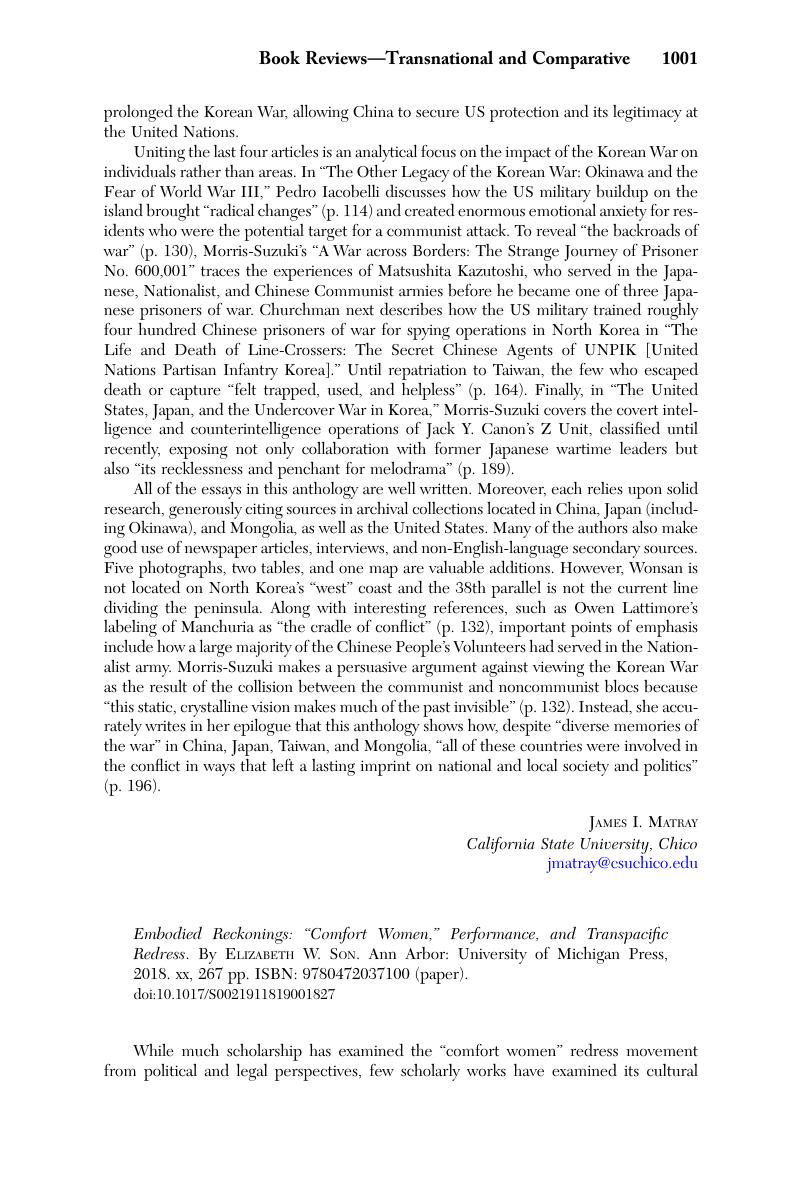No CrossRef data available.
Article contents
Embodied Reckonings: “Comfort Women,” Performance, and Transpacific Redress. By Elizabeth W. Son. Ann Arbor: University of Michigan Press, 2018. xx, 267 pp. ISBN: 9780472037100 (paper).
Review products
Published online by Cambridge University Press: 03 December 2019
Abstract

- Type
- Book Reviews—Transnational and Comparative
- Information
- Copyright
- Copyright © The Association for Asian Studies, Inc. 2019
References
1 “Comfort women” is a euphemism used by the imperial Japanese government for girls and young women forced to work in Japanese military brothels known as “comfort stations” throughout East and Southeast Asia during the 1930s and 1940s. Estimates of the number of “comfort women” range from several thousand to two hundred thousand. See Yoshimi, Yoshiaki, Comfort Women: Sexual Slavery in the Japanese Military during World War II, trans. O'Brien, Suzanne (New York: Columbia University Press, 2000), 91–94Google Scholar.
2 Son defines “redressive acts” as “embodied practices that involve multiple audiences in actively reengaging with traumatic pasts to work toward social, political, cultural, and epistemological change” (p. 3).
3 Choi, Chungmoo, “The Politics of War Memories toward Healing,” in Perilous Memories: The Asia-Pacific War(s), eds. Fujitani, Takashi, White, Geoffrey M., and Yoneyama, Lisa (Durham, N.C.: Duke University Press, 2001), 398Google Scholar. Quoted in Son, p. 14.


